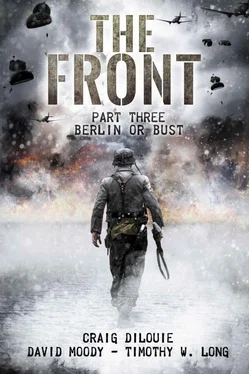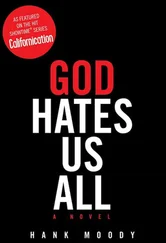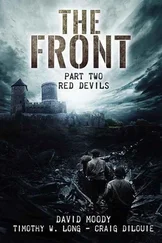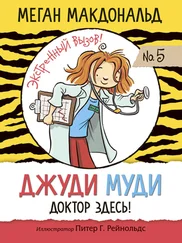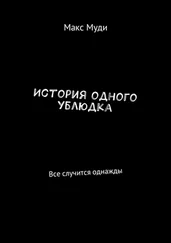The New Order had arrived.
When he reached his teen years, he began to chafe at how the Nazis controlled everything and viciously patrolled for non-conformity. Everything was forced enthusiasm and German glory. He didn’t want to have to be enthusiastic about everything the government was doing. He hated being bossed around. One of his teachers disappeared. His friend got in big trouble for swing dancing. He began to piece together that his Jewish childhood friend hadn’t simply uprooted but was instead forced into a ghetto. The history he’d learned in school was already being rewritten. When he turned fourteen, he had to work a year at either a farm or a coal mine, and spent a dreary year milking cows and shoveling shit.
Muller had grown up with a passion for painting. People had always told him the Führer himself was an accomplished artist. But even the arts were political in the new Reich . No art or music or books or film or anything else could be produced or consumed without approval and ultimate control by the Party, which churned out mediocre and bland creations. Fearing Muller’s moodiness might swing toward ideological purity and lead to his son denouncing him to the Party, his father began parroting Hitler at the dinner table, which made for tense mealtimes. Everybody, it seemed, wore a uniform. The block warden spied on everybody in the area. Every other day marked some national pride event requiring families to hang the Nazi flag. The newspapers carried screaming headlines like, POPE SPARKS COMMUNIST TERROR IN SPAIN! You had to yell “Heil Hitler” at everybody you passed on the street.
So Muller’s world was already looking bleak when the war came.
Five years of constant warfare brought together the worst of both times of his life. It was like going back to the uncertainty and rationing of his childhood, but with the Nazis controlling everything and turning it into a caricature of glory.
Still, when he reached draft age, there was no doubt he’d be serving the empire, most likely in the Wehrmacht . His father tried to pull strings to have him trained as an officer, but Muller didn’t want that. He didn’t want to order men to kill. He volunteered for the paratroopers purely for the challenge.
While he’d grown to despise the Nazis, he loved Germany, and he loved his parents. In the Flieger , he’d prove himself both to his father and himself. Now he was wondering if he’d ever see his family or country again.
In the seat next to him, Ricard Schneider, who operated the flamethrower, was looking out one of the small windows that ran all the way up to the cockpit. The big soldier grunted. “Somebody needs to tell them the war’s over.”
With that statement, the paratrooper whom everybody called Animal grunted and released a tremendous fart, pure sulfur. Muller winced as it seared his nostrils. He hadn’t been overly romantic about joining the Army, but so far all it had delivered was calisthenics, bad food, rotten company, and the threat of typhus.
“The SS just started firing,” Muller said. “That’s what happened. Right?”
“I’m not talking about them, kid.”
Hearing muffled booms, he turned to look out the window. “Where are we?”
“My guess is France, maybe Belgium.”
An incredible battle was taking place below him. Clouds of black smoke drifted over the scarred earth. Mushrooming fireballs and waves of dust rose from the snow-covered, blackened ground. The booms became a steady rumbling thunder that grew louder by the moment.
He shook his head and squinted to see more clearly.
Thousands of figures loped toward a series of trenches. Singly, in pairs, in massive crowds that at this height looked like strange herds. Howitzer shells exploded in the middle of these crowds, producing empty craters.
Muller gaped. The crowds didn’t scatter but instead kept marching toward the trenches. Another vast crowd was expanding from the river in the east. Hundreds of men appeared at its edge.
They seemed to be walking out of the water—
“Schneider…”
Animal stared down at the ground in a stunned silence. Then the gray clouds closed in and obscured everything in permanent fog. Pale, he turned away and lit an ersatz cigarette with trembling fingers.
Muller looked across the cabin. One by one, the paratroopers turned from the windows to stare off into space, shivering. Oberfeldwebel Wolff frowned as if trying to figure out a riddle that couldn’t be solved.
Were they civilians being slaughtered by the Allies? It couldn’t be. The people down there had marched straight into deadly shot as if it were mere rain. An attack? No. The shooting only went in one direction.
He said, “Sch-schneider?”
“Shut up, rookie.”
“What was that down there?”
A trick of the eyes, maybe.
“I don’t know!” The man gripped the sides of his head. “I’m going crazy! Nothing makes sense!”
Miller turned to study his formidable comrade. The big soldier wore a fur-lined ski cap favored by mountain troops, snow camouflage quilted jacket, gray-green combat trousers with the hilt of a gravity knife jutting from his right thick pocket, and a Luger strapped over his left thigh. Black leather gloves, jump boots, gas mask in canvas bag across his chest. Yellow on his collar patch marking him as a paratrooper.
Schneider was a veteran soldier who’d killed men with fire and didn’t appear to know fear himself. But what he’d seen down there on the banks of the River Meuse scared him.
Which only made Muller far more terrified.
When the Fallschirmjäger feared something, it was time to be very, very afraid.
The cloud cover broke to reveal water below. The Fallschirm had finally achieved its dream of crossing the English Channel.
Unless the British shot them down first.
“We’ve got company,” Steiner told Schulte.
Spitfires, Typhoons, and Hurricanes braced the squadron on all quadrants, leading them toward England.
“Hmm,” murmured Schulte, who was trying to sleep. “What company?”
“Enemy planes.”
Schulte crossed his arms and nestled back into his seat.
Steiner snorted. “How can you nap at a time like this?”
“Are you afraid they’re going to shoot us down, comrade?”
“Of course I’m afraid they’re going to shoot us down.”
“Then do something about it besides keeping me awake with your whining.”
As always, Steiner found the sniper insufferable. He turned away to look out the windows again. Below, land returned, brown beaches followed by the odd geometric patches of farms freckled with snow cover.
Then an X appeared, the familiar shape of an airfield.
“Where do you…?” Steiner kept the rest of his thoughts to himself. He’d learned his lesson about talking to Schulte.
Next to him, the sniper’s lips curled into a slight smile.
Some of the transports had already started landing. Steiner’s plane reduced altitude but began to circle the airfield. Freezing air whistled through the cabin.
Reiser marched to the cockpit. “What are you doing?”
“Making sure it’s safe,” the co-pilot shouted back.
“Do we have orders to land?”
“ Ja. ”
“Do we have enough fuel to get back to Genoa?”
“ Nein. ”
“Then land the plane, idiots!” the lieutenant screamed.
“Christ, please don’t shoot them,” Steiner muttered to himself.
Next to him, Schulte chuckled.
The pilots steered into a sharp turn, banking to line up the Junkers for a landing.
“Oh, no,” the sniper opined in falsetto. “Where are we? Who are those bad men? Who am I?”
Читать дальше
